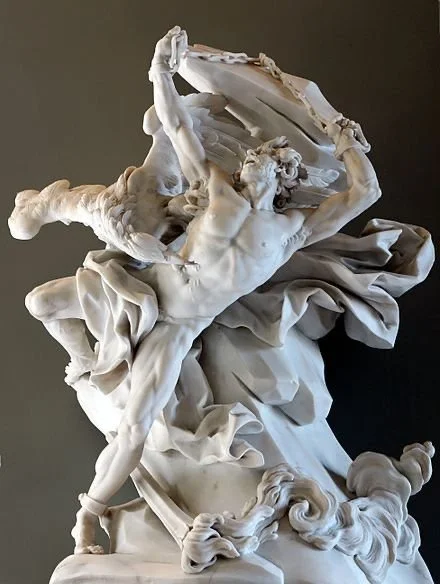An Execution at the Gala: Met Opera Opening Night
Dead Man Walking is best known by the ’90’s movie starring Sean Penn as a complete asshole and Susan Sarandon as a symbol of unconditional love.
The Met Opera debuted Jake Heggie’s Dead Man Walking for their 2023 Gala. The work is not meant to be a commentary on the death penalty, but rather an emotional story of humanity. A great deal of love is summoned to view this from Sister Helen Prejean’s eyes. The opera designs that by seating attendees in a situation most would never face-
An execution.
Art is meant to evoke emotion. This story is a person to person expedition through anger, fear and grief.
Expecting the staging to be drab and the same Sarandon-Penn story told, this year’s Opening Night Gala was nearly missed. The disturbing content was also a deterrent. After all, the best opera’s are filled with antiquated tragedies, not real life social issues. The projected imagery of rape and murder was also not befitting a Gala.
Until now.
The art of Dead Man Walking is that it gives rise to all three basic emotions: anger, grief and fear. Witnessing an execution- something most will never experience- can be both dehumanizing and humanizing.
Heggie created a more digestible villain by amalgamating two real-life death row inmates. Both were under the spiritual advisory of Sister Prejean. One reached sorrow for his crimes, the other remained defiant until his dying breath.
Ayurvedic Tidbit: Losing love gives rise to anger, grief and fear. These are the 3 basic human emotions. Indignation, torment and anxiety are subsets of these feelings.
At the Met, Joseph De Rocher is played by Ryan McKinny and Prejean by Joyce DiDonato. They bring to life the decades Sister Prejean spent confronting her life’s work and meaning. In two acts, Rocher fluctuates between belligerent and beleaguered, machismo and child. The audience transforms with him from his first spiritual meeting to him strapped in the execution bed.
“There is a life and death at stake in every scene.”
Transcending convict-nun relations, the opera house is engulfed in the emotional polarity of every other person involved, from the warden to the relatives. One family gains spiritual support, the other does not. When their messages are delivered with the dramatic tones of operatic voices, words can be enraging.
$cientific Tidbit: Rage = an emotion that is symbolized by the same color as love- red.
The audience watched in silence. On the big screen, the injection of poison projected live. Delivered from human to human.
On display was the “We the People” tattoo on Rocher’s forearm communicates an argument for society’s rules. One that the real convicts conveyed either to draw guilt or release it.
Audible cringe and visible unease passed through the audience as the IV was inserted. Fear of needles or moral questions underlying the death penalty?
That is the moment you put aside what a bad guy he is. That is to be human.
Music Director Yannick Nézet-Séguin conducted a perfect opening night. Scores of depth and lightness carried the waves of emotions felt by the characters and audience. Not all plaintive. The children’s choir brought uplifting hopeful energy with “He Will Gather Us Around” in music that is not usually heard at the opera. Nézet-Séguin even adds a bit of Elvis Presley.
The abstract set design underwent a transfiguration with tinted lighting reflecting emotional changes. The numbing green of death row to the vehemence of red during the execution.
The projections allowed operagoers to see through the eyes of the rapist-murderer and the teenagers who were brutalized.
The repetitive pleas filled with the burden of a lost goodbye is hauntingly expressed by the cast of parents in “You Don’t Know What It’s Like to Bear a Child.” Their final words to their children “comb your hair, fix your blouse, shut the door…” ring in your ears with melody and sorrow long after you leave Lincoln Center.
Mrs. de Rocher, played by Susan Graham, the original Sister Prejean, sings “The Defendant’s Mother” with such deep regret for mistakes made by a son.
Emotional struggles are captured side-by-side of the nun and the convict in big screen projections. This was particularly striking because no human can look away or not feel another person’s angst exposed on their faces.
As Sister Prejean contemplates her life purpose with “The Journey to Christ” and Rocher considers the reality of the end of his life.
Except in real life, the other guy had no remorse. Sister Prejean deemed him incapable of that type of humanity. His surviving rape victim forgave him.
BOTTOM LINE
Dead Man Walking conjures questions about our purpose as individuals and as a society. We are not God. That is fact. There might not be a superior entity that governs good versus bad. But as humans that are defined in the animal kingdom and try to separate ourselves from it, art work like the opera should draw up enough emotion to change or strengthen our course. Can we be human enough to not let our anger and sadness murder a murderer? Can we understand the love it takes to do that?
Dead Man Walking is on stage at the Met Opera until October 21, 2023. The opening night gala was held on September 26, 2023.




















